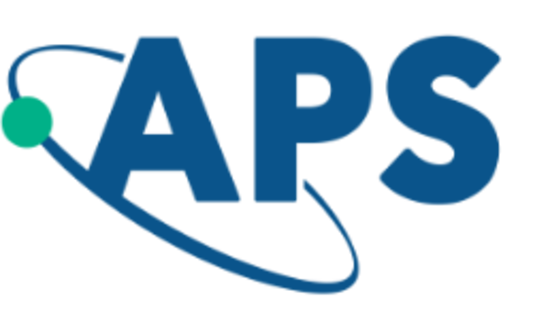Fall Semester
Throughout the fall semester, students at different academic levels may face specific challenges and concerns. As a mentor, making yourself aware of some of the common challenges your mentee faces, based on their academic level, can help you understand their perspective.
Freshmen
Some of the challenges and experiences freshmen students are undergoing include:
- Academic adjustment: Transitioning from high school to college can be academically challenging, as freshmen adapt to a new level of coursework and teaching styles.
- Time management: Many freshmen struggle with effectively managing their time, balancing coursework, extracurricular activities, and social commitments.
- Study skills: Learning how to study effectively, take notes, and prepare for exams in college-level STEM courses can be a learning curve for freshmen.
- Navigating campus: Getting accustomed to the campus layout, resources, and support services can be overwhelming for newcomers.
- Cultural adjustment: Navigating a predominantly homogeneous environment in physics departments and feeling isolated due to lack of representation.
- Financial strain: Facing financial barriers that may affect access to resources, textbooks, and extracurricular activities.
- Family expectations: Balancing familial expectations with the demands of a rigorous physics curriculum and potential differences in career aspirations.
- Peer relationships: Navigating social dynamics and building connections with peers who may have different backgrounds and experiences.
Sophomores
Some of the challenges and experiences sophomore students are undergoing include:
- Course load: Sophomores often encounter more demanding and specialized courses, which can be challenging as they delve deeper into their chosen field.
- Choosing a major: Some students may still be uncertain about their choice of major or may consider changing their field of study, which can create uncertainty and stress.
- Internship and research pressure: Many STEM majors begin seeking internships or research opportunities in their sophomore year, leading to added pressure to secure these experiences.
- Maintaining GPA: As coursework becomes more specialized, maintaining a strong GPA can be a significant concern for sophomores.
- Networking challenges: Overcoming potential difficulties in networking and building connections within a field that lacks diversity.
- Financial pressures: Managing the costs of tuition, housing, and other expenses, which can impact academic focus and involvement.
- Coursework rigor: Dealing with advanced physics courses that demand intense study and understanding, while potentially facing additional challenges due to underrepresentation.
- Family support: Navigating family dynamics and seeking support for academic pursuits that might be unfamiliar to their families.
Juniors
Some of the challenges and experiences junior students are undergoing include:
- Advanced coursework: Juniors often take more advanced and complex courses, requiring a deeper understanding of foundational concepts and critical thinking skills.
- Undergraduate research: Balancing coursework with research commitments and potentially facing challenges in project design or data analysis.
- Career planning: Juniors may start contemplating post-graduation plans, including graduate school applications, job searches, or other career paths.
- Time constraints: Juggling coursework, research, and potential part-time jobs or extracurricular leadership roles can lead to time management challenges.
- Academic confidence: Overcoming self-doubt and imposter syndrome that may arise from being underrepresented in advanced physics courses.
- Research opportunities: Seeking research positions that may offer valuable experience but also require navigating potential biases in selection processes.
- Financial concerns: Managing the costs of research activities, conferences, and travel, which can be challenging on a limited budget.
- Familial expectations: Balancing familial expectations with career goals that may differ from traditional or familiar paths.
Seniors
Some of the challenges and experiences senior students are undergoing include:
- Graduation and transition: The impending graduation can create stress and uncertainty about next steps, whether it's entering the job market, pursuing further education, or other opportunities.
- Thesis or capstone projects: Seniors working on thesis projects or capstone experiences may face challenges related to project scope, deadlines, and research complexities.
- Networking and job search: The pressure to network, attend career fairs, and secure job offers can be overwhelming for seniors as they prepare to transition into the workforce.
- Completing requirements: Ensuring all degree requirements are met and handling any last-minute challenges that might arise.
- Career path challenges: Navigating the competitive job market or graduate school admissions process and addressing potential biases in recruitment.
- Financial decisions: Making informed decisions about job offers or graduate school acceptances while considering potential financial constraints.
- Network building: Working to expand professional networks and seek mentorship, which may be limited due to the lack of historically underrepresented physicists.
- Family support and concerns: Communicating about post-graduation plans and managing potential family concerns or financial support.
Graduate students
Some of the challenges and experiences graduate students are undergoing include:
- Research and dissertation: Graduate students often grapple with the demands of research, data collection, analysis, and completing a comprehensive dissertation or thesis.
- Teaching responsibilities: Those with teaching assistant roles must balance teaching duties with their own coursework and research commitments.
- Time management: Managing multiple responsibilities, such as coursework, research, teaching, and potentially work or family commitments, can be challenging.
- Career preparation: Grad students may be focused on building a strong CV, attending conferences, and networking to prepare for future academic or industry positions.
- Work-life balance: Balancing academic and personal life while managing stress and potential burnout can be particularly challenging for graduate students.
- Research and funding: Navigating the complexities of securing research funding, which can be crucial for graduate studies in physics.
- Academic environment: Addressing potential isolation or lack of representation in graduate programs and seeking supportive networks.
- Financial stress: Balancing the demands of graduate coursework, research, and teaching responsibilities with potential financial pressures.
- Transition to career: Preparing for the transition from graduate studies to professional roles while addressing potential biases in the job market.

